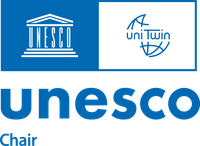Project Investigator: Dr. Daniel Tobin
The challenge of global food insecurity requires that research investigate the means by which rural development interventions can grow markets in ways that distribute the benefits of food security and income stability without sacrificing biodiversity. In the central highlands of Peru where thousands of potato varieties continue to be cultivated, contractual arrangements between smallholding farming communities and industry processors are being pursued as a pro-poor development intervention. This evaluation research explores the livelihood activities and resulting food security outcomes among Andean households both engaging in contractual schemes and those not. Through this evaluation, program and policy recommendations are provided to communities and development organizations that aim to enhance market access for smallholding agricultural producers. Included are efforts that focus on strategies to adjust programming to meet the priorities of the people they intend to benefit and identify viable and appropriate food security interventions to help address the chronic malnutrition in the region.
PDF document, 3.0 MB
Pro-poor value chains seek to integrate smallholding farmers into high value markets in ways that improve income and alleviate food insecurity. As this market-oriented development approach gains prominence, research must investigate how value chains interact with local places and the livelihoods of the people who live there. Through a case study of one community in the Peruvian central highlands and the native potato value chains implemented there, this study explores the horizontal dynamics among community livelihoods and vertical dynamics among value chain actors. Based in Actor-oriented Perspectives (AP) theory, this study posits that development is (re)constructed by the actors participating. Though a mixed methods approach, this study investigated the experiences that households have had since a national NGO implemented native potato value chains with (trans)national corporations. During five months of fieldwork, 149 of 152 households (98%) were surveyed and 36 interviews were conducted among community members, NGO coordinators, and company executives. Multivariate regression and thematic analysis explored specific livelihood components of community members: dietary quality, project participation, on-farm diversification, livelihood activity diversification, social interaction, and demographics. Analysis also considered the native potato value chains and how the livelihood decisions of community members influence their structure and function.




